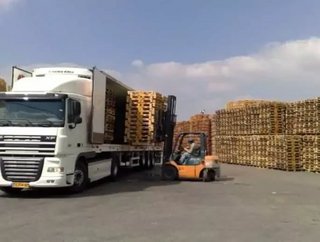Pallet pooling makes warehousing sense

When gas prices soar, transpiration costs soar. It’s a simpler equation than 1+1=2.
So how can distributors and freight forwarders combat rising transportation costs? According to a report on PalletEnterprise.com, the most logical solution comes in the form of pallet pooling.
Palletization alone can be a difficult process, but pallet pooling basically means renting out or leasing pallets from a shared pool. Costs are reduced, as you don’t have to buy new pallets or sustain your own pallet fleet.
According to iGPS, pallet pooling allows businesses to “focus their capital expenditures and day-to-day supply-chain operations on their core business and eliminate the expensive distraction of owning and maintaining an inventory of pallets."
SEE OTHER TOP WAREHOUSING STORIES ON THE WDM CONTENT NETWORK
Foxconn factory explosion hurts tech supply chain
Going Green: The Sustainable Supply Chain
It’s time to rethink the food supply chain
Check out May’s issue of Supply Chain Digital!
In the report on PalletEnterprise.com, several pallet pooling company executives discussed how pallet pooling can make or break a pallet pool.
From PECO Pallet CEO David Lee: “The Key to the game of pallet pooling is to control redistribution costs.” This means companies need active management to ensure empty miles, asset losses and storage costs are kept at a minimum.
From PALNET CEO Michael Smith: “Transport costs are probably the single largest expense per trip for a pooled pallet. Reposition costs could run $1 for a $4.50 trip cost.”
From CHEP Vice President Bill Wade: “Having thousands of customers, we see both national and regional brands across our network. During the economic downturn, we received more pallets back than we estimated.”
Each company is trying to make pallet pooling more cost-effective and easier on a growing customer base. While pallet pooling doesn’t make sense for every company, with transportation costs rising, pallet pooling could be an effective solution to your company’s pallet needs.






